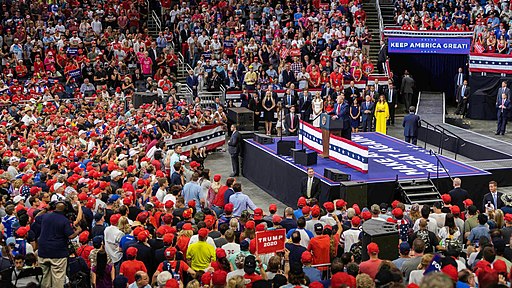Multi-millionaire Jeffrey Epstein stands accused of sex trafficking and conspiracy to traffic minors for sex. On July 18, US District Court judge Richard Berman denied bail, ordering that Epstein be confined until trial.
The US Constitution’s Eighth Amendment is short and sweet: “Excessive bail shall not be required, nor excessive fines imposed, nor cruel and unusual punishments inflicted.”
What would constitute “excessive” bail in Epstein’s case? Whatever it might be, no bail at all fits the definition, especially given what Epstein put on the table by way of a bail proposal.
There are two issues at stake:
In a 1951 case, Stack v. Boyle, the US Supreme Court held that “a defendant’s bail cannot be set higher than an amount that is reasonably likely to ensure the defendant’s presence at the trial.”
The Bail Reform Act of 1984 does provide for “preventive detention” without bail, but only if a judge “finds that no condition or combination of conditions will reasonably assure … the safety of any other person and the community.”
What would assure Epstein’s appearance at court, and protect young women from further depredations of the type he’s accused of?
Epstein offered more than $100 million in cash bail. That’s a powerful incentive to appear for trial. Perhaps not enough for someone of his means. But there’s more.
Epstein also offered to submit to house arrest at his New York residence, with an electronic bracelet to track his every move, armed guards to keep him from leaving or prospective victims from entering, prior approval by federal authorities for ANYONE to enter, and a court-appointed live-in trustee whose sole job would be to report any violations of the bail agreement to the court. All of that paid for by Epstein himself.
Furthermore, Epstein offered to de-register and ground his personal jet, and to preemptively waive extradition from any country on Earth.
It’s difficult to imagine a bail arrangement more fully encompassing the two legitimate objectives of bail itself.
That offer puts the lie to what Berman called “the heart of his decision” — his doubt that “any bail package could overcome dangerousness … to community.”
That leaves two plausible explanations for Berman’s decision.
One is that, like many judges, he just habitually defers to prosecutors (who in turn habitually use “no bail” requests to grandstand as “tough on crime”).
The other is that he’s already tried and convicted Epstein in his mind and sees no reason to wait for a jury to hand him the fore-ordained “guilty” verdict before Epstein’s punishment commences.
Either way, Berman should recuse himself from the case or be removed from it.
Why should any of us care about the plight of poor, poor, ultra-rich Jeffrey Epstein? Because this kind of stuff goes on every day in courts across the land, featuring poor defendants held on minor charges. We’re only HEARING about it because Epstein is rich and infamous.
If they can do it to Epstein, they can do it to you. So they shouldn’t get away with doing it to Epstein.
Thomas L. Knapp (Twitter: @thomaslknapp) is director and senior news analyst at the William Lloyd Garrison Center for Libertarian Advocacy Journalism (thegarrisoncenter.org). He lives and works in north central Florida.
PUBLICATION/CITATION HISTORY
- “No Bail is Excessive Bail, Even for Jeffrey Epstein,” by Thomas L. Knapp, River Cities’ Reader (Iowa), 07/24/19
- “No Bail is Excessive Bail, Even for Jeffrey Epstein,” by Thomas L. Knapp, OpEdNews, 07/25/19
- “No bail is too excessive, even for Jeffrey Epstein,” by Thomas L. Knapp, Duluth, Minnesota Superior Telegram [web and print], 07/25/19
- “No bail is excessive bail, even for Jeffrey Epstein,” by Thomas L. Knapp, Montgomery, West Virginia Herald, 07/25/19
- “No Bail is Excessive Bail, Even for Jeffrey Epstein,” by Thomas L. Knapp, CounterPunch, 07/26/19
- “No Bail is Excessive Bail, Even for Jeffrey Epstein,” by Thomas L. Knapp, Ventura County, California Citizens Journal, 07/28/19


